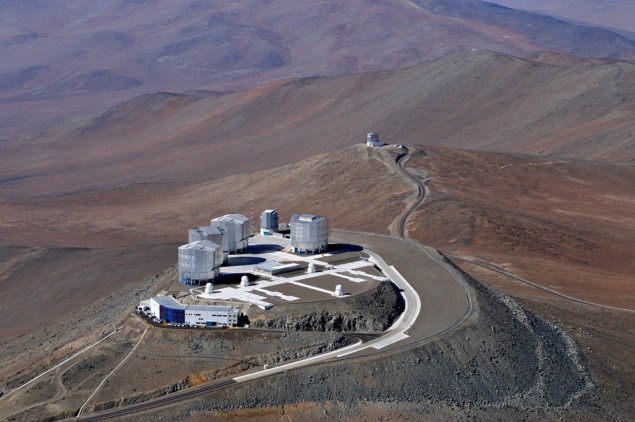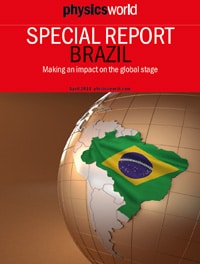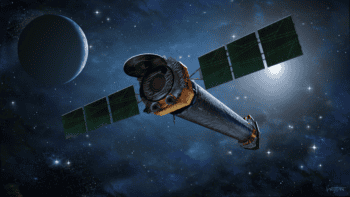
Astronomers in Brazil have voiced their disappointment after the European Southern Observatory (ESO) suspended the country’s membership following its failure to ratify an agreement struck in 2010. ESO had allowed Brazil to be an interim member, giving its astronomers access to the consortium’s telescopes, but from 1 April scientists will have to apply for time on a similar basis as non-ESO members.
Brazil’s road to membership of ESO began at the end of 2010 when former Brazilian president Luís Inácio Lula da Silva signed an agreement to join – his last official act as head of state. This signalled the country’s intent to become a full member of the organization but before it could do so, the agreement first had to be approved by Brazil’s National Congress and then ratified by the president of Brazil.
Sadly, [the suspension] wasn’t a big surprise for us
Astrophysicist Ulisses Barres
While the approval from the National Congress came in May 2015, the presidential ratification was never signed – neither by Lula’s successor Dilma Rousseff nor by Michel Temer, who took on the presidency after her controversial impeachment in 2016.
Despite the lack of formal ratification, ESO has allowed astronomers in Brazil to work at its facilities since 2010 as an interim measure. This has given Brazilian astronomers free access to ESO’s infrastructure, with the Brazilian Astronomical Society (SAB) estimating that around 300 Brazilian researchers actively collect data at ESO facilities, which in turn has led to around 3% of the world’s indexed astronomy papers now being published by Brazilian scientists. “In terms of scientific publication rates, our performance at ESO was not too different from that of countries with a much longer tradition in observing the skies such as Germany, France or the UK,” says SAB president Reinaldo de Carvalho.

Budget crunch hits Brazilian physics
However, due to Brazil’s failure to ratify the agreement, ESO decided at a council meeting on 7 March to suspend the country’s membership with effect from 1 April. “All indications are that Brazil is unfortunately not currently in a position to complete the ratification process,” says ESO public information officer Richard Hook. He adds that astronomers at Brazilian institutes will still be able to apply for observing time, but they will no longer be considered on the same basis as those from ESO member states.
‘No easy ride’
Carvalho says that Brazil can still publish good science without ESO membership, but it will be hard to publish high-impact science. “The case well illustrates to what extent Brazil still lacks a solid state-level commitment to science and technology,” says Carvalho, who adds that the head of Brazil’s science ministry has changed six times over the past seven years.
While ESO membership would have costed us around €270m, we invested over €290m in the renovation of a single football stadium to host the 2014 World Cup
Astronomer Gustavo Rojas
That view is backed up by astrophysicist Ulisses Barres, from the Brazilian Centre for Research in Physics. “Sadly, [the suspension] wasn’t a big surprise for us”, he says. “The negotiation process was nearly stuck since its inception in 2010, with virtually no action on part of the Brazilian government representatives.”

Physics World Special Report: Brazil
Astronomer Gustavo Rojas, a representative of the ESO Science Outreach Network and a researcher at the Federal University of São Carlos, agrees that the government’s priorities have resulted in the deadlock. “While ESO membership would have costed us around €270m, we invested over €290m in the renovation of a single football stadium to host the 2014 World Cup,” he says. “It’s the newer generations of astronomers that are likely to be most affected by the country’s suspension from the consortium. In an increasingly competitive environment, it will be no easy ride for them to collect good-quality data without access to appropriate tools.”
The SAB will now meet with government representatives next month to discuss the next steps. Brazil’s science minister, Gilberto Kassab, told Physics World that the ministry is keen to ensure that Brazil’s membership status can be resolved soon. However, that may not happen quickly given that the country faces an austerity programme and that the current administration has shown little enthusiasm for science and technology. “Nevertheless, I have to remain optimistic,” adds Carvalho.



